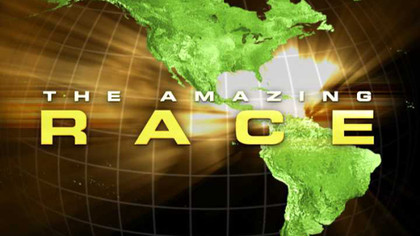Unraveling Aereo: is there a case against the TV-internet streamer?
It's complicated

Sign up for breaking news, reviews, opinion, top tech deals, and more.
You are now subscribed
Your newsletter sign-up was successful
The buzz surrounding Aereo has only intensified as broadcasters' legal battle to stop the service in its tracks has earned it tons of free publicity, but it's also left us with plenty of questions.
Aereo is the company that picks up free, over-the-air broadcast television signals on thousands of tiny, individual antennas, then streams it via the internet onto any device. It charges subscription fees to users, but it isn't paying television broadcasters a cent for the content.
The New York-based firm has won every court challenge to its business so far, and Aereo has made its point clear with statements asserting that its legal victories show that "consumer access to free-to-air broadcast television is still meaningful in this country." Aereo, it seems, is on a mission.
Cable companies see it differently, however, and the issue is far from black and white. This is murky legal territory on an issue that could have far reaching implications for how all sorts of programming reaches our screens in years to come.

Filled with questions regarding the legality of Aereo's services, we consulted with David Oxenford (pictured left), a partner at the law firm Wilkinson Barker Knauer, LLP. Oxenford focuses on broadcast law and broadcasters' rights, and he's also the author of the Broadcast Law Blog, on which he discusses the intricacies of this complicated area of copyright law daily.
Aereo speedwagon
The Aereo case truly is a big deal. Consumers are hungry for more choices when it comes to watching TV, and that's part of Aereo's appeal.
Time Warner CEO Glenn Britt even said earlier this month that it may begin offering a similar service if Aereo's is found legal. And even though it's unclear how many users Aereo actually has (the company offered no figures we posed the question to it), big networks like Fox and CBS have publicly threatened to take programs off broadcast TV and make those cable subscription-only if Aereo keeps winning in court. Aereo is even attempting to legally block CBS from filing yet more suits.
Sign up for breaking news, reviews, opinion, top tech deals, and more.
The meat of the situation, according to Oxenford, rests in whether Aereo's services constitute a "public performance" in the eyes of the law.
"Really it's in the nature of defining what is a public performance," Oxenford told us.
Broadcasters argue that what Aereo is doing is equivalent to what cable networks do when those companies retransmit others' programming. Retransmitting that content to cable subscribers is legally defined as a public performance, which is why cable services pay royalties to those providing the programming.

In the eyes of broadcasters, what Aereo is doing isn't any different, except that it's not paying royalties. Aereo, as you can imagine, tells a different story.
"Aereo argues and what the New York court found…is that it was not Aereo that was actually making the performance here; it really is the individual recipient who is basically telling Aereo's system to pick that particular channel and record it to a digital video recorder at Aereo's headquarters, and then either transmit it immediately or store it for later transmission to the user," Oxenford explained, "and so the Aereo argument is that it's a private performance."
In the public interest
Another argument in favor of Aereo is that it's technically not rebroadcasting the content it sends to subscribers' computer screens. Aereo doesn't change the content; it simply offers the same programming that broadcast TV viewers are already getting for free and presents it in a different format (over the internet).
Aereo has professed in statements issued to the public and press that its service is a simple extension of broadcasters' responsibility to make programming accessible to the public.
Michael Rougeau is a former freelance news writer for TechRadar. Studying at Goldsmiths, University of London, and Northeastern University, Michael has bylines at Kotaku, 1UP, G4, Complex Magazine, Digital Trends, GamesRadar, GameSpot, IFC, Animal New York, @Gamer, Inside the Magic, Comic Book Resources, Zap2It, TabTimes, GameZone, Cheat Code Central, Gameshark, Gameranx, The Industry, Debonair Mag, Kombo, and others.
Micheal also spent time as the Games Editor for Playboy.com, and was the managing editor at GameSpot before becoming an Animal Care Manager for Wags and Walks.
